 Here are five characters from the Legion of Super Heroes history that everyone seems to have forgotten about. For each one, I'll tell you a little bit about the character, and then tell you why they were AWESOME.
Here are five characters from the Legion of Super Heroes history that everyone seems to have forgotten about. For each one, I'll tell you a little bit about the character, and then tell you why they were AWESOME.Duplicate Boy:

Duplicate Boy was Ord Quelu, one of a group of super heroes from the planet Lallor who got their powers from cosmic radiation or some such. As a result, Duplicate Boy could duplicate the powers of any super hero he saw. His superheroing ways eventually resulted in crossing paths whith the Legion, and for awhile, he was Shrinking Violet's love interest.
Why Duplicate Boy Was Awesome:
What was great about Duplicate Boy was that he was dumb as a fucking post. I mean it. The guy was a moron. At one point, he confronted Shrinking Violet for resuming a romantic relationship with Colossal Boy. When he discovered that in fact, the woman in question was someone impersonating Shrinking Violet, he left, satisfied. IT NEVER OCCURRED to him to wonder what had happened to the original Shrinking Violet (who had in fact, been kidapped).
Here's the kicker. Duplicate Boy's powers weren't that he could duplicate the powers of other super heroes at all. Duplicate Boy could have ANY POWER he could think of. He just didn't have any imagination.
Shvaughn Erin:

Shvaughn Erin was a member of the Science Police, the United Planets main law enforcement unit. She ultimately became the Legion's police liason and was extremely helpful to them on a number of occasions. Her involvement with Element Lad was one of the series' most storied romances.
Why Shvaughn Erin was Awesome:
Shvaughn was awesome because she managed to hold her own with a horde of men and women who could move worlds and do basically anything. Also, it eventually came out that Shvaughn was one of comics' first transsexuals, who had been using super advanced future medical technology (specifically, a drug called Pro-Fem), to make herself biologically female.Ferro Lad:

Ferro Lad was Andrew Nolan, a mutant with a disfigured face who had the ability to transform himself entirely into iron. Andrew had a brother, Douglas, who did not become a super hero (one wonders what other avocations are available for a disfigured mutant who can turn into iron).
Why Ferro Lad was Awesome:
Ferro Lad may be the only character in comic book history to die and stay dead. Ferro Lad died when he flew a bomb into the heart of the Sun Eater, a very nasty apocalyptic super weapon that did exactly what you would expect it to. After that, Ferro Lad became the standard for super hero heroism ("Who can forget when Ferro Lad died saving us all from the Sun-Eater...").
Kid Psycho

Kid Psycho was Gnill Opral, who applied to the Legion of Super Heroes with his psychokinetic abilities, which he mostly used to create psychokinetic force fields. The Legionnaires all thought this power was super great, even though the way he used it it really wasn't any big deal.
Why Kid Psycho was Awesome:
One might wonder why someone named Gnill "Kid Psycho," suggesting he was some kind of lunatic, rather than say "Kid Psyche," or "Kid Psych." Even "Psycho Lad" doesn't sound as bad. However, the name seems a lot more appropriate when you discover that every time he used his powers, it cost Kid Psycho A YEAR OF HIS LIFE. Knowing this, the maladjusted Gnill decided to put himself in a situation where he would have to use his powers ALL THE TIME. Fortunately, the Legion had more sense then Gnill, and immediately moved him to reserve status.Validus

Validus was Garridan Ranzz, the child of founding Legionnaires Lightning Lad and Saturn Girl. Darkseid kidnapped the child, sent him back in time, and mutated him into a horrible monster, in which form he would do battle with his parents time after time before he was even born. (One is forced to wonder about the wisdom of Darkseid's plan, If Validus was successful in defeating the Legion, wouldn't he prevent himself from ever being born?)
Why Validus Was Awesome:
Here's what was awesome about Validus. It wasn't that he was stronger than Superman or could shoot lightning bolts from his brain. It was that the Legion of Super Heroes were fucking TERRIFIED of him. Consider this. Validus was a member of the Fatal Five. Included in the Fatal Five (along with Tharok, an evil genius cyborg who could control Validus) were the following: The Emerald Empress, who controlled the Emerald Eye of Ekron, which was essentially the eye of a giant Green Lantern, chock full of Green Lantern energy which can effectively do anything the user can imagine, the Persuader, whose Atomic Axe could cut through anything (literally anything; A steel wall, a car, Superman's head, gravity {Im not making that up. It could cut through gravity}, anything), and Mano, whose black hand disintegrated anything it touched (again, anything. If Mano got to bitch slap Superman across the face, no more Superman's face). Despite all this, when the Legion heard the Fatal Five were on their way, it was VALIDUS that had them quaking. When describing a villain's supposedly awesome power levels, the phrase used would be "Tougher than Validus."OK, there's some comic book trivia for you to enjoy. See you next month (maybe sooner).

 SPOILER ALERT! If you have not yet seen the last episode of Lost, read no further (if you care about knowing what happens)
SPOILER ALERT! If you have not yet seen the last episode of Lost, read no further (if you care about knowing what happens)



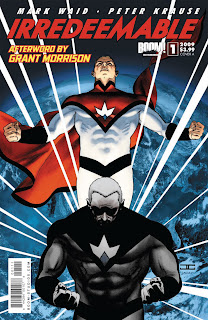










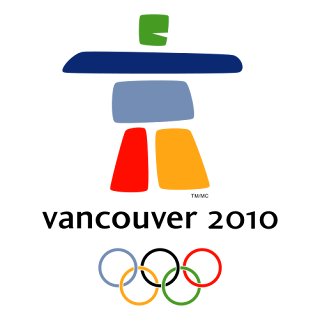


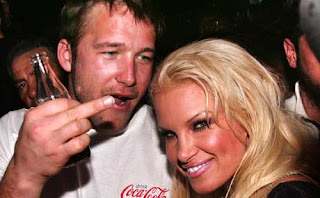
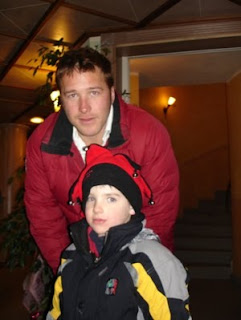



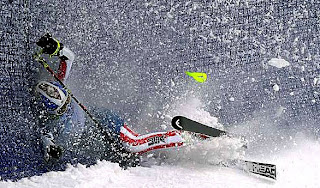

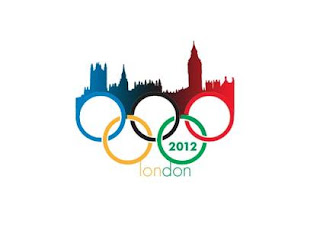


 And I was quite sure that FOX was going to screw it up (the "Coming soon to ABC-TV!" banner on the above comic refers to a short-lived Human Target series on ABC back in 1992 starring
And I was quite sure that FOX was going to screw it up (the "Coming soon to ABC-TV!" banner on the above comic refers to a short-lived Human Target series on ABC back in 1992 starring 
















